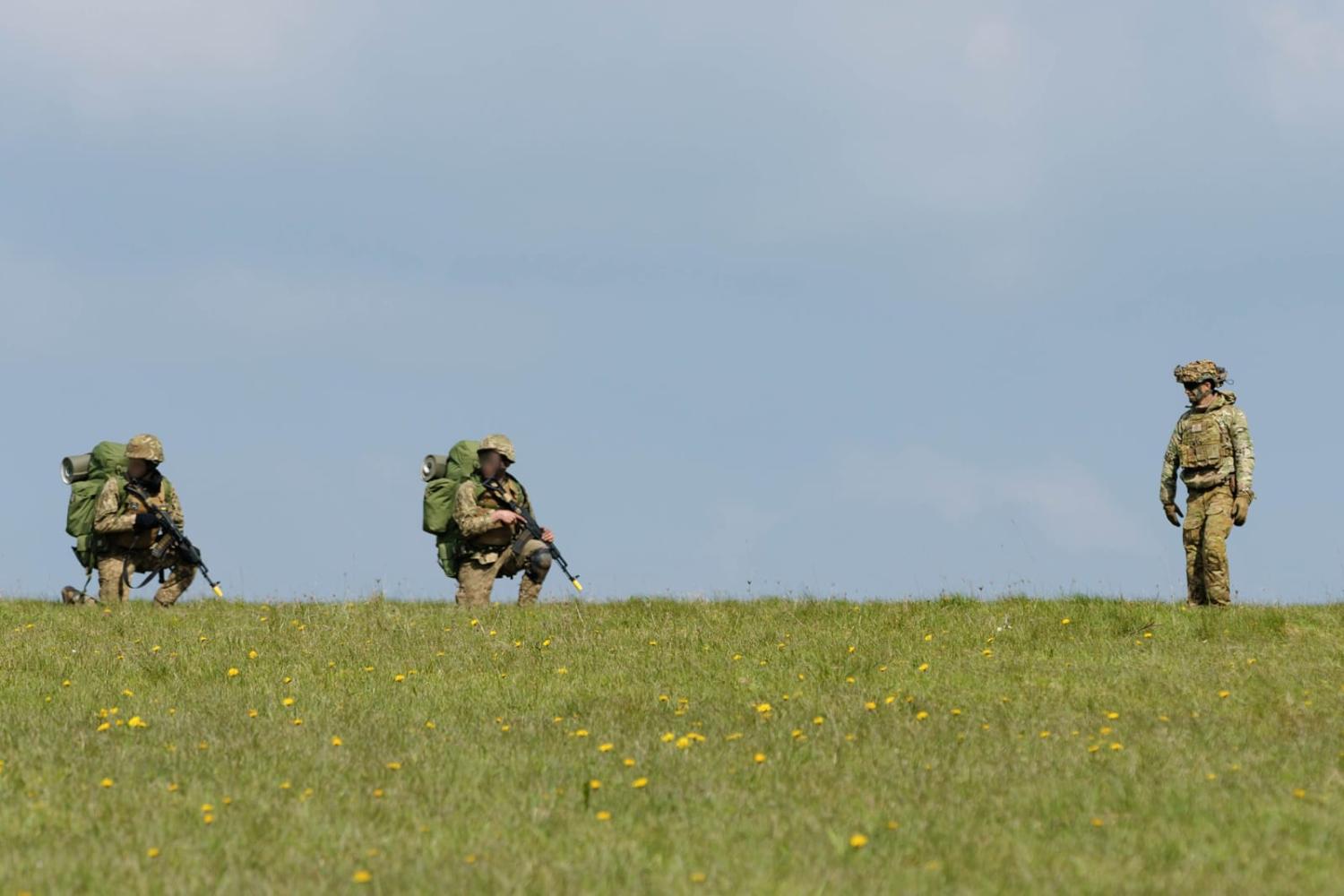Even before Russia’s weekend of upheaval left people wondering what to think, Australian attitudes towards the war in Ukraine have proved fascinating. Australians might have a high opinion of wartime leader Volodymyr Zelenskyy and still overwhelmingly back Ukraine following Russia’s invasion, but those feelings of support are not as strong heading into the second year of the war as when the shelling started. The latest Lowy Institute Poll of Australian attitudes to world affairs released last week shows a marked drop in those who “strongly support” assistance to Kyiv.
Three-quarters of Australians want to send military aid to Ukraine. But the proportion who “strongly support” doing so has fallen 15 points in the last year to 37%. But this hasn’t been matched by a big increase in those “strongly opposed”, which now sits at 10%, up from 6% in 2022.
Australia has provided more than half-a-billion dollars of military aid to Kyiv to date – including Bushmaster armoured fighting vehicles, drones and munitions. The Australian Defence Force has also continued to assist British efforts to train Ukrainian soldiers.
But Canberra has balked at Ukraine’s call for additional Bushmasters, some tanks or a fleet of lighter Hawkei battlefield four-wheel drives. Kyiv’s savvy social media pleas have not shifted the Australian government’s stance. If more military assistance is forthcoming, it will likely be announced when Prime Minister Anthony Albanese fronts the July NATO leaders’ summit in Lithuania.
The origins of Australia’s initial strong support for providing military aid to Ukraine are worth examining. Not least because the 2016 Lowy Institute Poll found 47% of Australians agreed Europe was of “decreasing importance to Australia”. An interest in standing up for the central tenets of the liberal rules-based order – namely territorial integrity and sovereignty – appears to be at the core of Australia’s initial overwhelming commitment to assisting Ukraine. This was supported by an international poll earlier this year that assessed global support for Ukraine in the context of the Russia-Ukraine war. Australia ranked second highest of nations polled when it came to supporting the belief that “doing nothing in Ukraine will encourage Russia to take further military action elsewhere”. In this, 76% of Australians (second only to the Brits) felt inaction over Ukraine might see ripple effects such as bolstering China’s confidence to take military action against Taiwan.
In the absence of a clear victor in the Ukraine-Russia war, this focus on broader interests appears to be waning. A number of variables could be shifting people’s attention – from concerns of a domestic economic slump, rising inflation, and global food and fuel resource price pressures, to concern over Australia’s own national defence capabilities.
The latest Lowy Institute Poll also shows a drop in Australians reporting concern about the “critical threat” that Russian foreign policy poses to Australia to 57%, down from 68% last year (for context, in 2017 this figure was 37%). Australians may be becoming accustomed (again, like in the Cold War years) to Russia being cast as the “bad guy” of international politics, or this may also reflect Ukraine’s perhaps surprising and valiant resistance.
Shifts in Australian attitudes are reflected overseas. Recent US polls, for example, show Americans are increasingly sceptical about delivering military aid to Kyiv. In the first days following Russia’s February 2022 invasion, only 7% of Americans thought that the US government had provided “too much” assistance – but that has since increased to 28%. From the other end of the spectrum, 42% of respondents felt the United States was not providing enough support to Ukraine in the early days of the war, a figure that had dropped to 16% according to the latest polls.
If this is an indication of public war fatigue, that would be consistent with past experience. Two years after the US-led invasion of Iraq, the 2005 Lowy Institute Poll found that 46% of Australians felt the country should continue its military involvement. By 2007, this figure had dropped to 37%.
Although different belligerents and theatres for the conflicts, Australians may be asking themselves a similar question about the ambition of supporting foreign conflicts: what is the end goal? In the case of Australian military assistance to Kyiv, is the aim to see a total defeat of Putin’s Russia on the battlefield? Or would the government and other international supporters be content with a return to the pre-February 2022 circumstance? What of the fate for Crimea, annexed by Russia in 2014? Would a negotiated settlement between Russia and Ukraine be acceptable? Is a Chinese-brokered peace deal palatable?
Of course, the answers to such questions will depend on the continued trajectory of the conflict. But in Australia, the absence of a national public debate along these lines would have the net impact of further corroding Australian support for militarily aid to Ukraine. Forever wars are never supported forever.

